|
Singapore
 Value Added Tax
Value Added Tax
➤ Singapore's VAT is a 7-percent Goods and Service Tax. There are few exemptions and no refunds.
➤ Singapore's GST is applicable to all items that are brought into the country.
 Voltage
Voltage
➤ 220/240 volts
 Garbage
Garbage
➤ Order trash ser-vices through the show ontractor.
➤ Booth-disposal fees and trash generated from I&D are the responsibility of the exhibit builder. If trash is not disposed of properly, the exhibit builder can be fined.
➤ Generally, booth cleaning is ordered through show management. An order form should be in the exhibition manual for each show.
 Smoking
Smoking
➤ Smoking is not permitted in exhibit halls.
➤ Establishments can set aside 10 to 20 percent of an outdoor area for smoking. Designated smoking areas will be clearly marked.
 Music
Music
➤ There is no body governing copyright or music in Singapore.
➤ If you plan to play music or have live musical performances in your exhibit, seek prior approval from show management.
Greetings and Culture
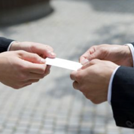
➤ The common greeting consists of "Hello" and a handshake and is sufficient to open all conversations. Business cards should be exchanged whenever meeting a new business contact.
➤ Business cards and all paper, including money, should be presented and taken with two hands, palms up. Do not write on the front or back of someone's business card, as it is considered rude.
➤ People from Singapore have complex names. Ask what they want to be called. Chinese people use the surname first and the given name second. Malay people do not use surnames, but use the initial from their father's name before their own.
➤ When greeting attendees from an Asian culture, it is best to open a conversation with polite small talk. Avoid the subjects of religion, politics, and sex as they are considered inappropriate topics for business conversations.
Hospitality

➤ Hospitality is not expected, but is welcome – especially if you plan to host meetings in your booth.
➤ At the larger expo centers, food is provided through in-house catering services only.
➤ Tea, coffee, water, and sodas are common beverages served.
➤ Service of alcohol is common depending on the industry, but approval to serve alcohol at your booth must be obtained from show management before the show.
Language
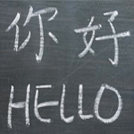
➤ While Singapore has three official languages – Malay, Mandarin, and Tamil – English is the language of business and is spoken widely. No translators are needed at trade shows.
➤ If the demographics of the show lean heavily toward Japanese or Chinese citizens, signage and literature can be printed in two languages. Otherwise, English-only signs and business cards are acceptable.
Staff Attire

➤ Clothing is slightly more casual in Singapore than the rest of Asia. Men wear dark slacks, dress shirts, and neckties. Women wear skirts and blouses.
➤ Medical and financial shows tend toward personnel wearing business suits. Other industries might have staff in matching collared shirts, but executives typically wear business suits.
➤ While venues are air-conditioned, Singapore is located near the equator, where the climate is tropical. Dress appropriately.
➤ Modesty is the best policy. Any tattoos or body piercings should be covered.
Installation and Dismantle
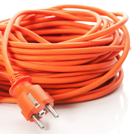
➤ Labor unions exist in Singapore, but offer no interference with regard to I&D. Exhibitors can assemble their own booths or bring in their own labor if they choose.
➤ Workdays run from 9 a.m. to 6 p.m. Rates depend on the service, such as general labor, audiovisual, IT or other technical services, plumbing, or electrical.
➤ Local exhibit builders generally provide their own labor for projects. If you need to arrange for I&D labor in Singapore, see if your U.S.-based exhibit house has an office or strategic partner in Singapore, or contract with a local exhibit builder.
➤ Electrical power is generally ordered through a form from show management. Exhibitors are allowed to plug in their own equipment at the show.
➤ Drayage, which is called site handling in Singapore, is charged on a per-cubic-meter basis.
General Facts and Tips
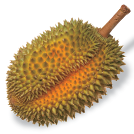
➤ Handshakes are light to the touch, not firm like is customary in the United States.
➤ Bring plenty of business cards because you will be expected to exchange them with almost everyone you interact with on the trade show floor.
➤ The two main convention centers – Suntec Singapore and Singapore Expo – are in different parts of the city approximately five miles apart, so check the location of the show before booking hotel rooms in the area.
➤ Upon entry into the country, immigration will issue a two-part entry card. The first part of the card documents your entry. The second part will be needed to exit the country.
➤ Singapore is a very clean country, and citizens and officials alike frown deeply upon littering or even eating food on public transportation.
➤ A local delicacy is the durian, a greenish-brown spiky fruit that has a strong smell. It is illegal to open a durian on public transportation or in most public buildings.
➤ Temporary labor is readily available for jobs ranging from booth models to receptionists. Expect an educated temporary worker if you choose to hire someone local for booth duties in Singapore.
Safety
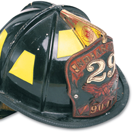
➤ Booth designers must submit plans to venue personnel for approval.
➤ The fire and structural safety of your exhibit is also subject to inspection by venue personnel.
|







 ➤ The common greeting consists of "Hello" and a handshake and is sufficient to open all conversations. Business cards should be exchanged whenever meeting a new business contact.
➤ The common greeting consists of "Hello" and a handshake and is sufficient to open all conversations. Business cards should be exchanged whenever meeting a new business contact. ➤ Hospitality is not expected, but is welcome – especially if you plan to host meetings in your booth.
➤ Hospitality is not expected, but is welcome – especially if you plan to host meetings in your booth. ➤ While Singapore has three official languages – Malay, Mandarin, and Tamil – English is the language of business and is spoken widely. No translators are needed at trade shows.
➤ While Singapore has three official languages – Malay, Mandarin, and Tamil – English is the language of business and is spoken widely. No translators are needed at trade shows. ➤ Clothing is slightly more casual in Singapore than the rest of Asia. Men wear dark slacks, dress shirts, and neckties. Women wear skirts and blouses.
➤ Clothing is slightly more casual in Singapore than the rest of Asia. Men wear dark slacks, dress shirts, and neckties. Women wear skirts and blouses. ➤ Labor unions exist in Singapore, but offer no interference with regard to I&D. Exhibitors can assemble their own booths or bring in their own labor if they choose.
➤ Labor unions exist in Singapore, but offer no interference with regard to I&D. Exhibitors can assemble their own booths or bring in their own labor if they choose. ➤ Handshakes are light to the touch, not firm like is customary in the United States.
➤ Handshakes are light to the touch, not firm like is customary in the United States. ➤ Booth designers must submit plans to venue personnel for approval.
➤ Booth designers must submit plans to venue personnel for approval.